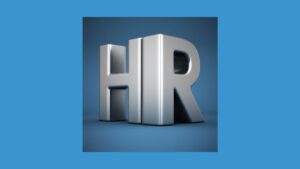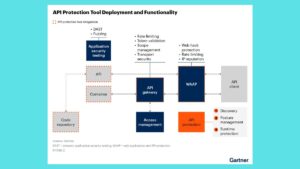Human Resource Solutions Through Digital Platforms: Revolutionizing Workforce Management

The evolution of digital platforms has brought transformative changes to virtually every industry, and human resources (HR) is no exception. As businesses seek to streamline processes, improve employee engagement, and drive productivity, HR digital platforms have emerged as essential tools for modern workforce management. In this blog, we’ll explore how digital platforms are revolutionizing HR, the benefits they offer, and the key solutions they provide for addressing contemporary HR challenges.
The Rise of Digital HR Solutions
Digital HR platforms integrate various HR functions into a unified system, making it easier for organizations to manage their workforce and ensure seamless operations. These platforms leverage technologies like artificial intelligence (AI), machine learning, and cloud computing to automate tasks, analyze data, and enhance employee experiences. The shift from traditional HR practices to digital solutions has led to more efficient and agile HR processes, enabling organizations to respond to the evolving needs of their employees and the business.
Key HR Solutions Enabled by Digital Platforms
- Recruitment and Talent Acquisition
Recruiting top talent is crucial for business success, and digital platforms make the hiring process more efficient and data-driven:
- Automated Candidate Screening: AI-powered recruitment tools can automatically screen resumes and identify qualified candidates based on predefined criteria, saving time and reducing bias in the hiring process.
- Applicant Tracking Systems (ATS): These systems enable HR teams to manage the entire hiring process, from posting job openings to scheduling interviews and tracking candidate progress. By centralizing recruitment efforts, ATS helps streamline workflows and enhance collaboration.
- Data-Driven Insights: Recruitment platforms often provide analytics that track hiring metrics such as time-to-fill, cost-per-hire, and sourcing channel effectiveness. These insights allow HR teams to optimize their recruitment strategies and improve outcomes.
- Onboarding and Employee Training
Effective onboarding and continuous training are critical for employee success. Digital HR platforms offer solutions to facilitate these processes:
- Automated Onboarding Workflows: Digital platforms can automate onboarding tasks such as filling out paperwork, setting up accounts, and assigning training modules. This ensures that new hires have a smooth and consistent onboarding experience, reducing time-to-productivity.
- Learning Management Systems (LMS): An LMS provides a centralized platform for delivering training content, tracking progress, and assessing employee learning outcomes. With access to e-learning modules, webinars, and other resources, employees can develop skills at their own pace.
- Interactive and Gamified Learning: Many digital platforms offer gamification features that make training more engaging. Interactive quizzes, rewards, and simulations can help reinforce learning and motivate employees to complete training programs.
- Performance Management and Employee Development
Traditional performance management practices often fail to provide meaningful feedback or support employee growth. Digital platforms enable a more dynamic and employee-centric approach:
- Continuous Performance Tracking: Instead of relying solely on annual reviews, digital platforms allow for ongoing performance monitoring and real-time feedback. This helps employees stay aligned with organizational goals and encourages regular communication with managers.
- Goal Setting and Development Plans: HR digital platforms facilitate the creation of personalized development plans and goal-setting frameworks, helping employees focus on growth areas and career progression.
- Data-Driven Performance Insights: By collecting performance data over time, HR platforms provide actionable insights that help managers make informed decisions about promotions, training needs, and succession planning.
- Payroll, Benefits, and Compliance Management
Managing payroll and benefits can be complex and time-consuming, especially for larger organizations. Digital HR platforms simplify these processes:
- Automated Payroll Processing: Digital platforms can automate payroll calculations, deductions, and tax compliance, reducing errors and ensuring timely payments. This automation also simplifies adjustments for changes in salary, bonuses, or overtime.
- Benefits Administration: Employees can access digital platforms to enroll in or update their benefits, review coverage options, and track usage. This self-service approach empowers employees while reducing administrative work for HR teams.
- Compliance Monitoring: HR digital platforms help organizations stay compliant with labor laws and regulations by providing automated alerts for deadlines, policy updates, and mandatory filings. This reduces the risk of legal penalties and keeps the organization up-to-date on compliance requirements.
- Employee Engagement and Communication
Keeping employees engaged and connected is vital for maintaining a positive workplace culture. Digital HR platforms offer tools to enhance engagement and communication:
- Employee Feedback Tools: Surveys and pulse-check tools enable HR teams to gather real-time employee feedback on workplace experiences, policies, and initiatives. This feedback helps organizations identify areas for improvement and implement changes that support employee well-being.
- Recognition and Reward Programs: Digital platforms can facilitate peer-to-peer recognition, rewards for achievements, and milestone celebrations. These programs contribute to a culture of appreciation and motivate employees to perform their best.
- Internal Communication Tools: Messaging and collaboration features allow employees to communicate efficiently, share updates, and access company news. This ensures that everyone stays informed and connected, regardless of their location.
The Benefits of HR Digital Platforms
- Increased Efficiency and Productivity
Automating repetitive tasks and streamlining workflows allows HR professionals to focus on strategic initiatives. Employees also benefit from self-service options, enabling them to manage their HR-related needs quickly and efficiently.
- Improved Decision-Making Through Data Analytics
Digital platforms collect and analyze HR data, providing insights that help organizations make informed decisions. Whether it’s optimizing recruitment strategies or identifying trends in employee turnover, data-driven insights drive better outcomes.
- Enhanced Employee Experiences
HR digital platforms facilitate personalized experiences, from tailored training programs to recognition initiatives. This leads to higher employee satisfaction, retention, and overall workplace happiness.
- Scalability for Growing Organizations
As businesses grow, managing HR processes manually can become cumbersome. Digital platforms offer scalable solutions that adapt to an organization’s changing needs, whether it’s adding new employees, expanding benefits, or entering new markets.
Conclusion
HR digital platforms are revolutionizing workforce management by providing comprehensive solutions that address the complexities of modern HR functions. From recruitment and onboarding to performance management and employee engagement, these platforms enhance agility, streamline processes, and empower employees.
As technology continues to evolve, the adoption of HR digital solutions will be essential for organizations aiming to stay competitive in a dynamic business landscape. Embracing these innovations not only improves efficiency and productivity but also creates a more connected, engaged, and empowered workforce poised for success.






